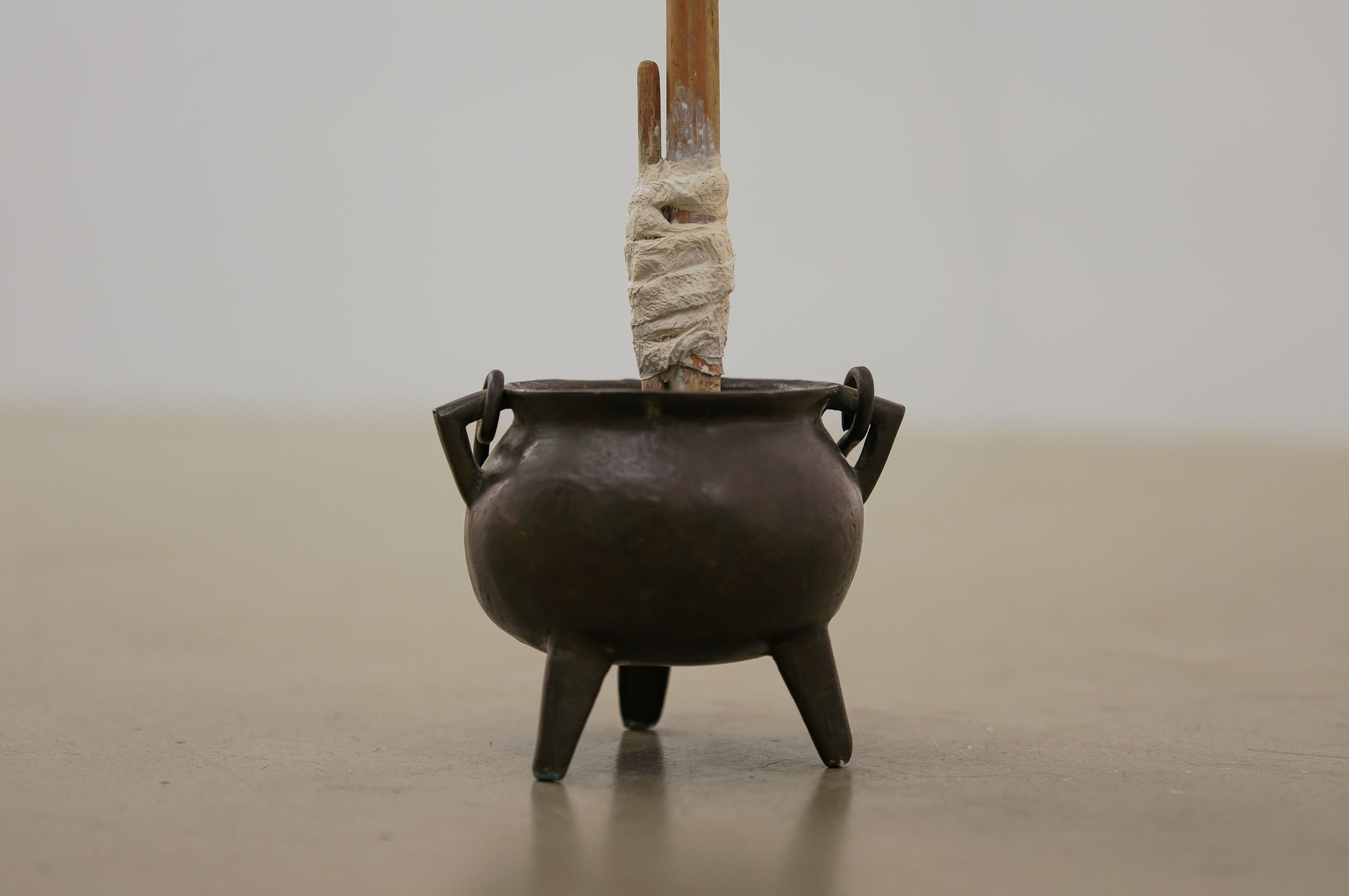
The Father of Eighteen Elves
copper pot, wooden spoon, found household sticks, paper mâché, rags,
Kling og Bang (IS), 2021
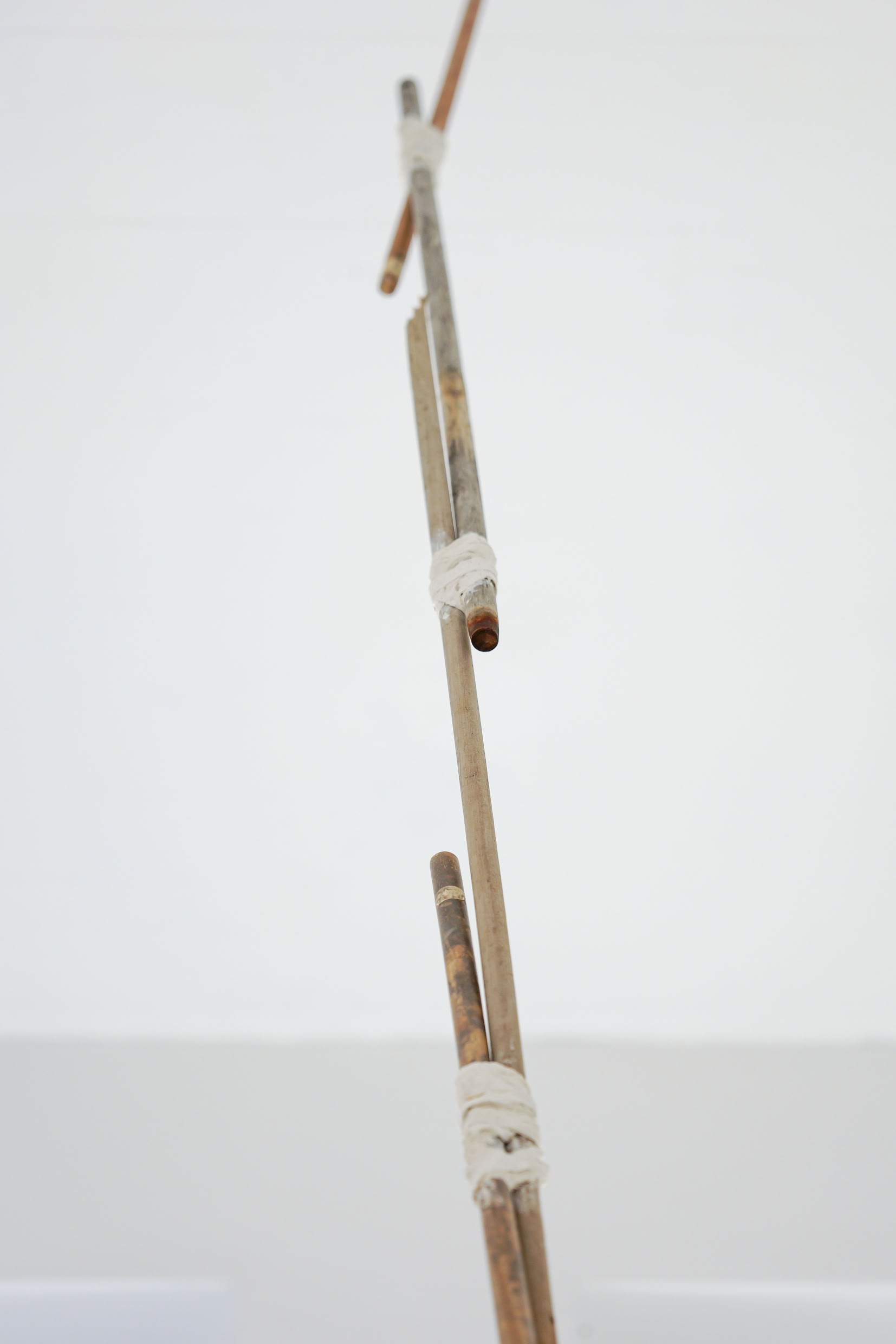
If my boss and my landlord met
would they drink to my health,
would they sing songs of me,
would they recognise me for what I am to them, which is to say, love.
Love in this arrangement is not reciprocal and does not involve the mutual extraction and exchange of love between two or more lovers. Theirs is an unrequited love, to which I’m equally the object of desire as well as a mere conduit for their passion. They, of course, aren’t really aware of this arrangement, but if they could see it my way they’d realise that I’m merely a marriage bed on which they consummate their relationship. An intermediary, if you will, of love. Yet their particular relationship could never function without me, for it is, in fact, a love triangle comprising of my boss, on one hand, my landlord on the other, and myself, and in this I am a 60-degree angle in an equilateral triangle, without which the relationship collapses, for without me they have no relationship, but this is true of any relationship without some sort of sentimental veil covering pragmatic contingencies, a tight-lipped notaries kiss on the prenup.
My names are amor, cherub, putto, cupid, tenant and employee.
I’m a wide-eyed waif, a folk-caricature, a kitsch ideal of precarity.
I’m a complex and fluid oral tradition that bosses and landlords tell themselves.
A meet-cute anecdote told of a chance encounter that flourished into love,
recounted at a dinner party that hopefully never happens.
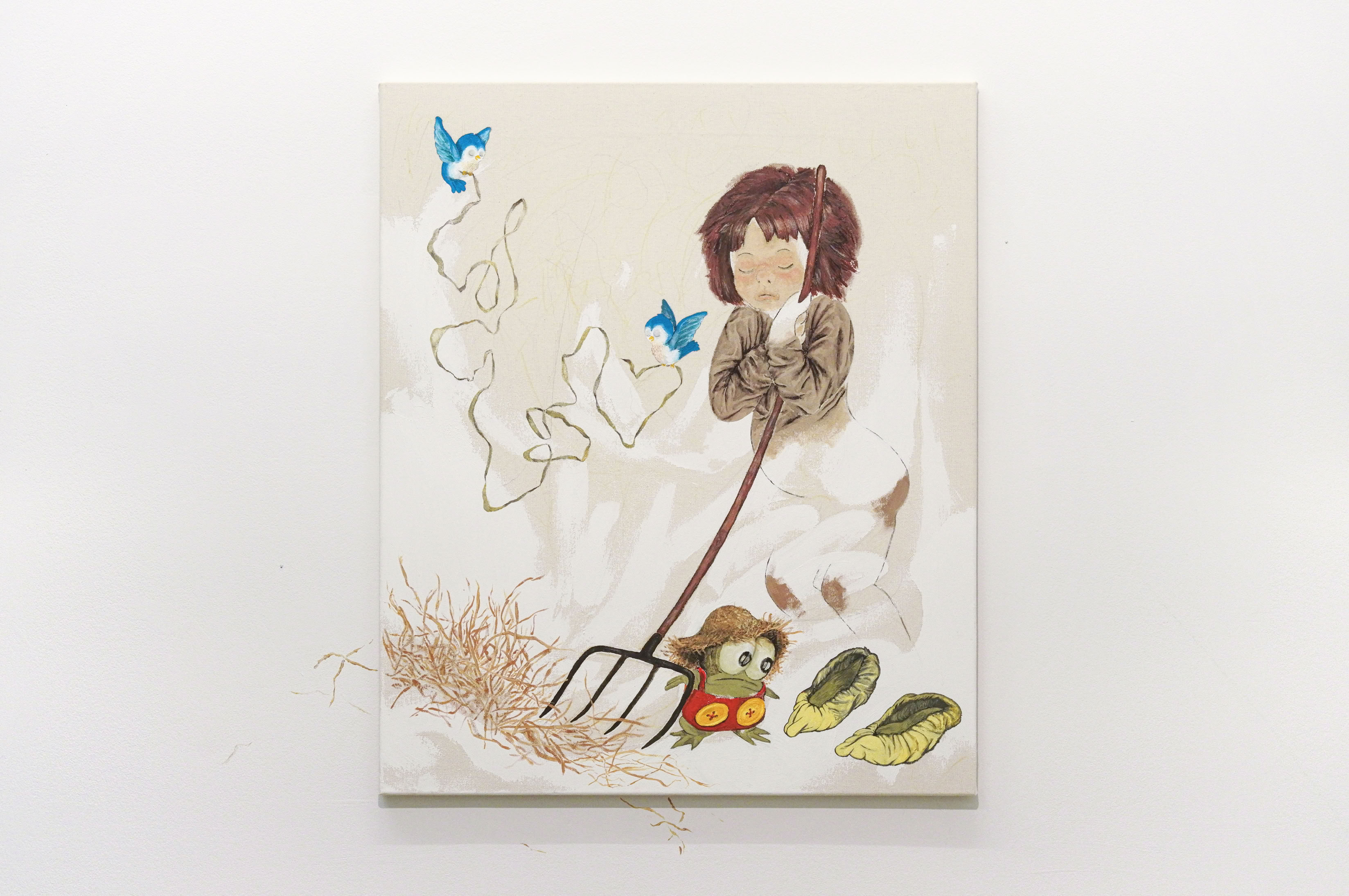
Mannsskinnsskórnir
gouache, watercolour, softpastel on canvas 90 x 75 cm
Kling og Bang (IS), 2021
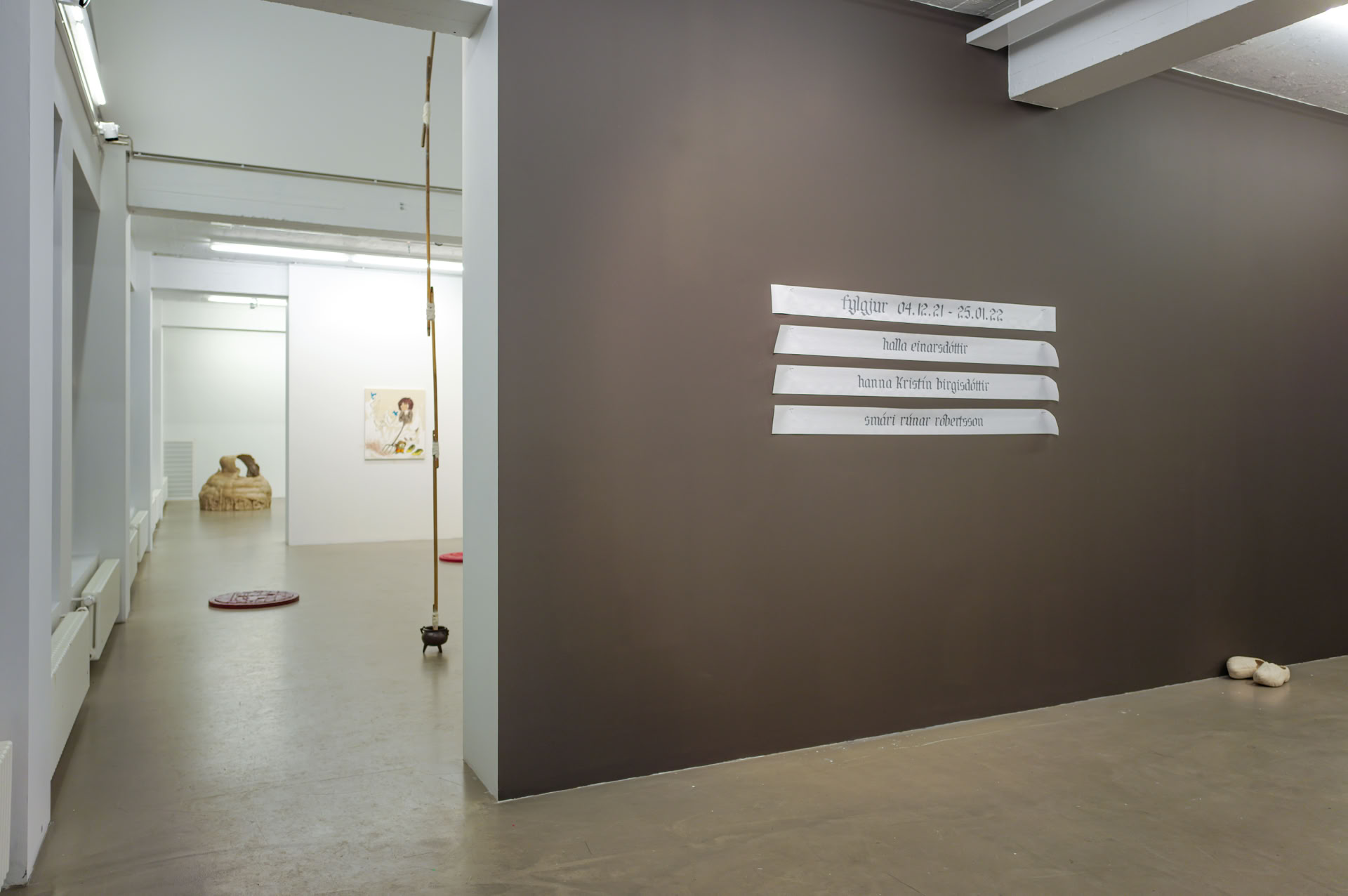
In the Icelandic folktale “The Father Of Eighteen Elves” a mother suspecting her child to be a changeling arranges before it a sculpture, something it would have never seen before, in order to trick it into its true form. “She took her smallest black pot and placed it in the centre of the room. Then she took a wooden spoon and tied it together with a series of sticks and placed it so that the shaft reached up from the pot into the chimney.”
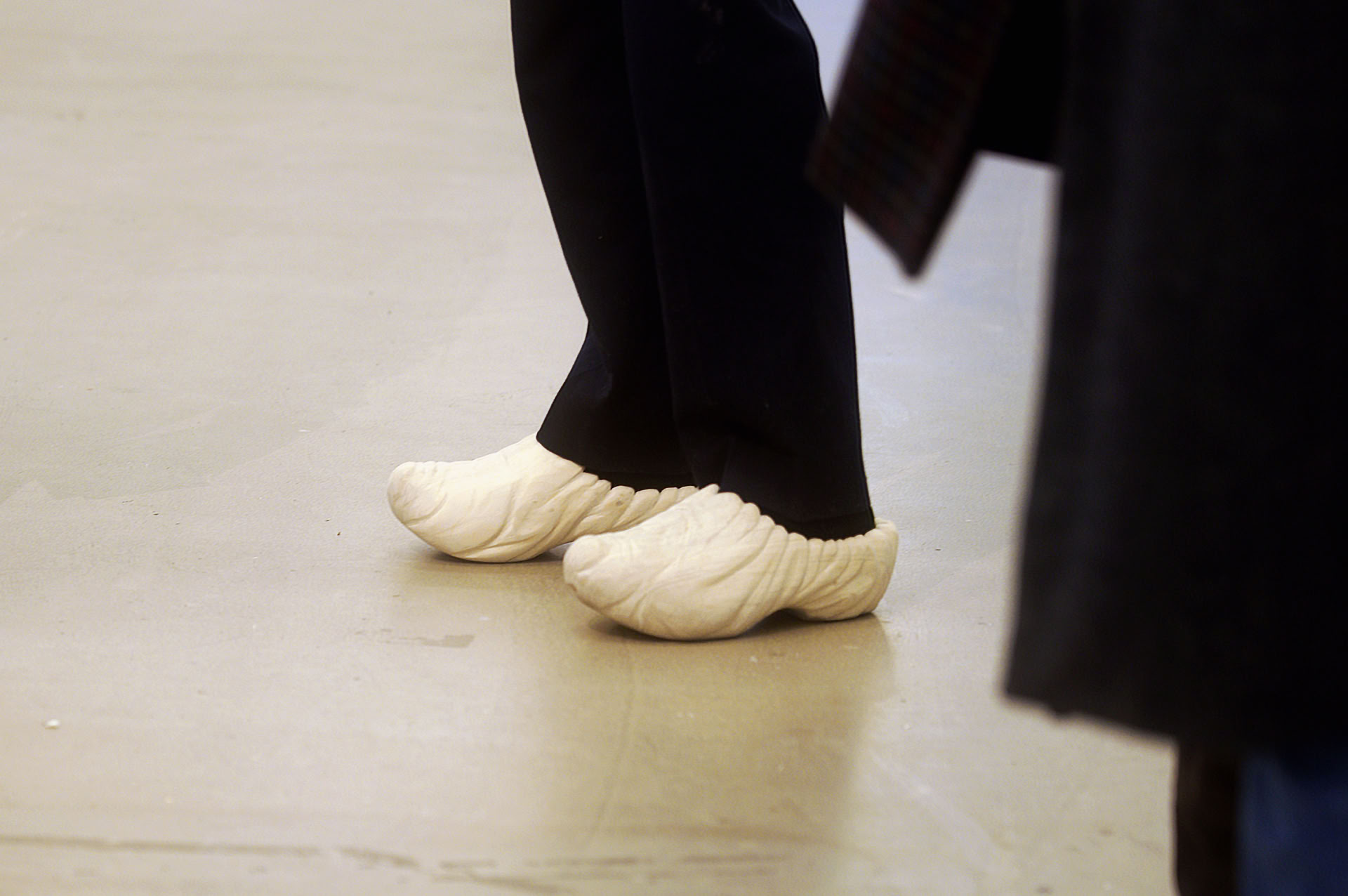
Mannsskinnsskórnir (human-skin-shoes) also takes its name from an Icelandic folk legend. In addition to the painting carved poplar clogs serve as a physical manifestation of the story’s catalysts that I wore whenever I was present at the exhibition.
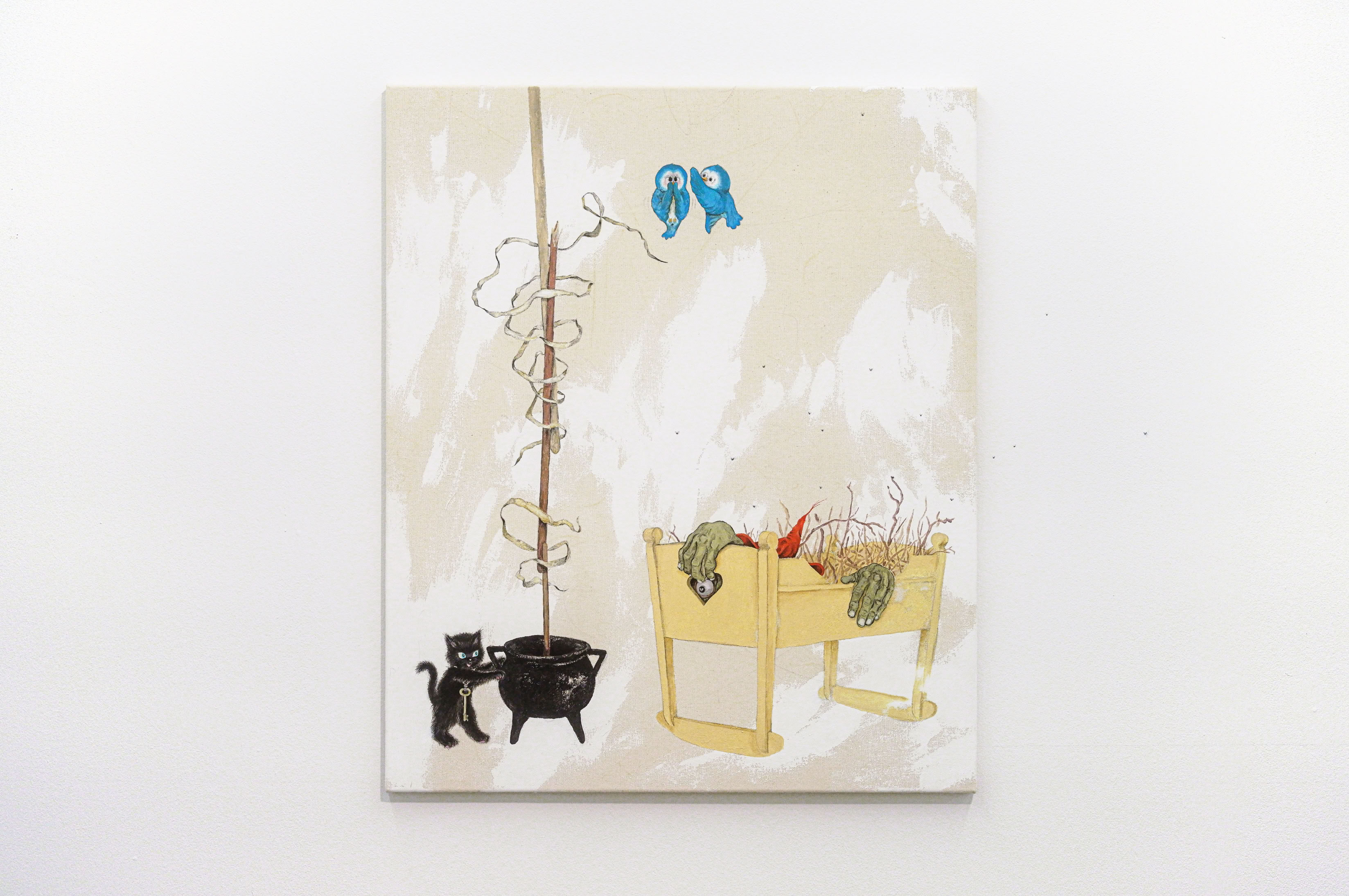
The Father of Eighteen Elves
gouache, watercolour, softpastel on canvas 90 x 75 cm
Kling og Bang (IS), 2021
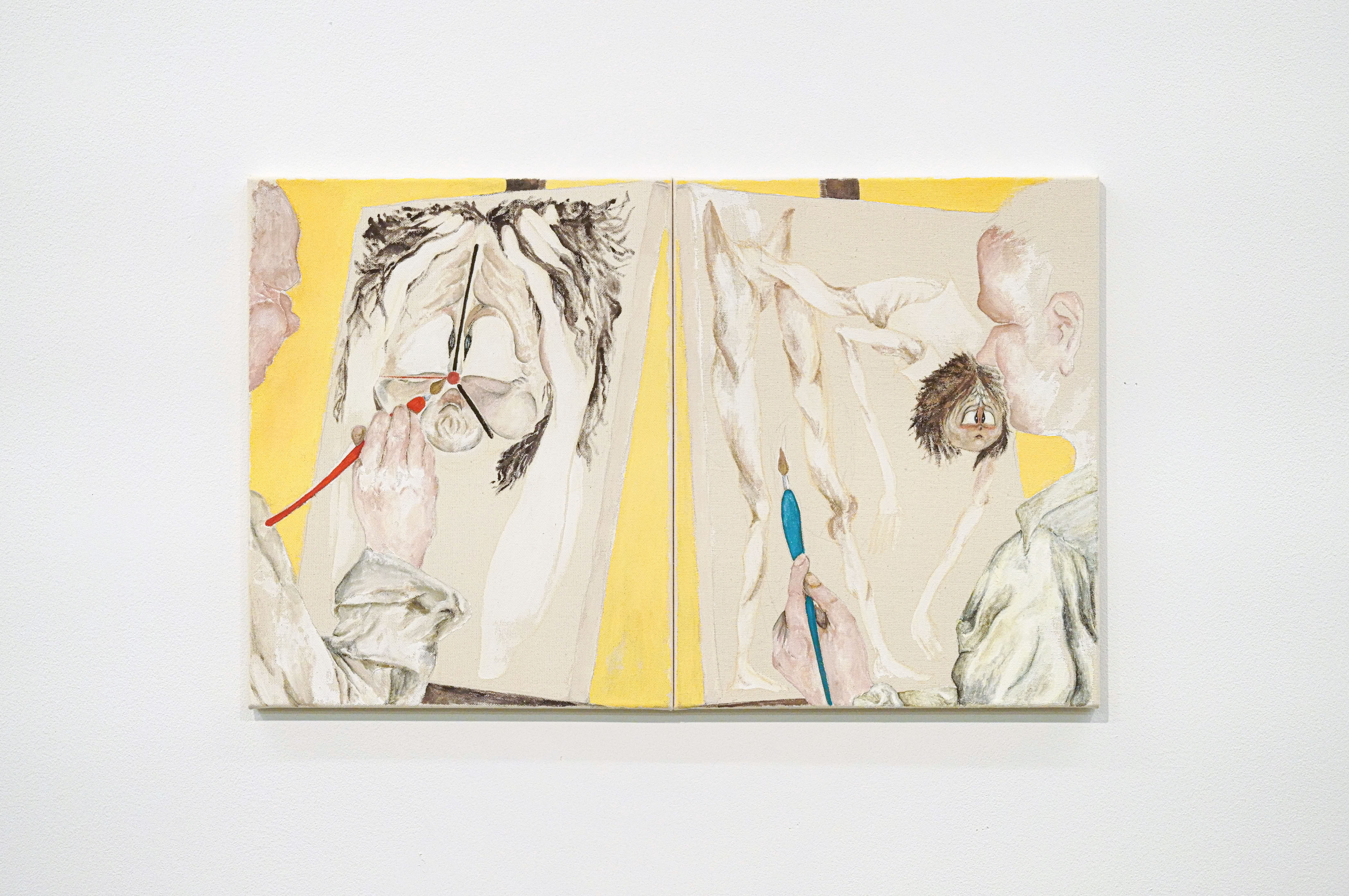
My Boss and Landlord Paint My Portrait
gouache, watercolour, softpastel on canvas, two 40x50 cm, 2021
Kling og Bang (IS), 2021